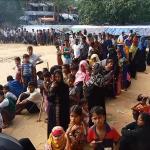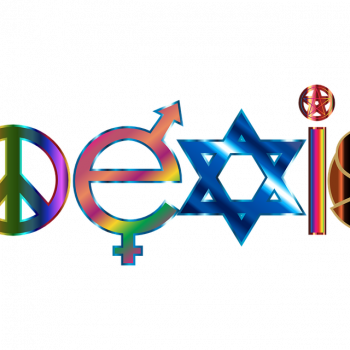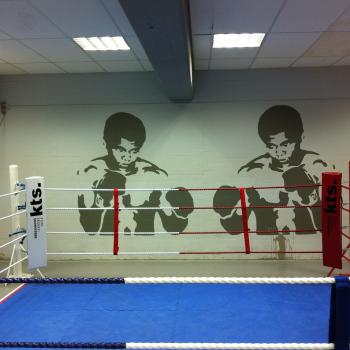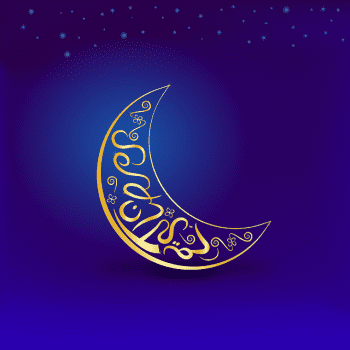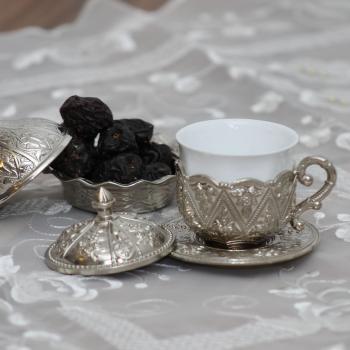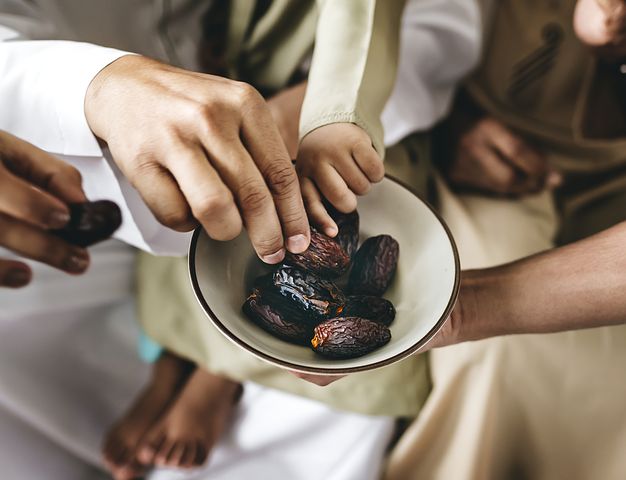 As we enter the last 10 most blessed nights of Ramadan, I have seen increasing number of Interfaith Iftars being organized during this Ramadan than perhaps ever before. I have had the honor of speaking at some of these events, including a synagogue in San Francisco at the invitation of one of my close Rabbi friend. I have also been planning to host one at my Islamic center in a few days. But Interfaith Iftars, like interfaith dialogue, may not be about what you may think.
As we enter the last 10 most blessed nights of Ramadan, I have seen increasing number of Interfaith Iftars being organized during this Ramadan than perhaps ever before. I have had the honor of speaking at some of these events, including a synagogue in San Francisco at the invitation of one of my close Rabbi friend. I have also been planning to host one at my Islamic center in a few days. But Interfaith Iftars, like interfaith dialogue, may not be about what you may think.
Interfaith Iftars are not about converting anyone. They are not about necessarily agreeing on everything or accepting each other’s viewpoint. They are indeed a great opportunity to get to know each other.
Let’s face it, the religion has been used to divide people of faith and to cause fear and hate, resulting in violence in some cases. The attacks on the places of worship in the United States and around the world makes it even more urgent for the people of faith to join hands against hate and violence. The Iftars are great opportunities for people of various faiths to come together to experience the richness of religious observance.
I was at B’nai Emenuah synagogue in San Francisco, sharing the stage with my host Rabbi Pam Frydman, Michael Pappas, Ex. Director of San Francisco Interfaith Council, Rita Semels, co-founder of the council, Co-host and Director of Pacifica Institute,Fatih Ates, and Rev. Arturo Albano the pastor at the beautiful St. Mary’s Cathedral among others. We highlighted the common bonds between us, and how different faith traditions fast at various occasions with one thing in common- avoiding the bodily needs and temptations for self-control and to ask for forgiveness. Indeed the period of fasting during Ramadan is spent in contemplation, repentance and deeds of charity. (OK, I admit, that’s more than one thing…)
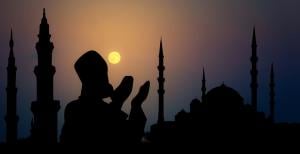 For Muslims, the charitable giving in the month of Ramadan exceeds giving in all other months of the year combined. This is a month to strengthen our relationship and connection with God. The fasting is prescribed as therapy for our body, mind and soul.
For Muslims, the charitable giving in the month of Ramadan exceeds giving in all other months of the year combined. This is a month to strengthen our relationship and connection with God. The fasting is prescribed as therapy for our body, mind and soul.
O you who believe! Fasting is prescribed to you as it was prescribed to those before you, so that you may (learn) self-restraint, (be God conscious). The Qur’an 2:183
The gathering at the synagogue gave us the opportunity to sit across from people of other faiths, sharing our rich religious traditions as well as breaking the fast(Iftar) together at the end. This was followed by the call to prayer (Adhan) and congregational prayer (Salat) near the altar in the synagogue (!), while our Non Muslim friends observed.
I saw security presence at the synagogue, which I view with mixed emotions-mostly sadness. These places of worship are increasingly looking like the security checkpoints at the airport! I definitely see, and support, the need for increased security given the recent rise in attacks on synagogues, mosques and churches. But common on, these are our places of worship!
…And had Allah not repelled some people with the might of others, certainly the monasteries and churches and synagogues and mosques in which Allah’s name is much remembered, would have been pulled down; and surely Allah will help him who helps His cause… The Qur’an 22:40
You see, for Muslims, it is an Islamic duty to protect the monasteries, the churches, the synagogues, and the mosques. I know some of us never got the memo!
It has not ceased to amaze me to read the prayer book at the Shabbat or other religious services at the synagogue. These remind me of so many passages from the Qur’an and other Islamic sources. For example:
Sh’ma Ysrael. Adonai Eloheinhu. Adonai Echad.
Translation: Hear O Israel. Adonai is our God. Adonai Alone(Adonai is One).
That’s La Illaha illaha! (There is no God but God) Or Q’ul Ho wAllaho Ehad. (Say, God is One)
Or
Barukh atah Adonai, Eloheinhu malekh ha-olam.
Translation: Praised are You Adonai our God, who rules the universe.
That is so close to Alhamdolillahe Rabbul Alaimeen (All praise is due to God, the Master of all the worlds) for Muslims- the opening of the most-often repeated chapter/Surah during the daily prayers.
And I can go on and on.
We cherish our similarities. But the real test of any interfaith relations will come when we can also openly talk about our differences. What separates civil societies from not-so-civil communities is not how they behave when they agree on everything, but rather when they disagree.
The interfaith Iftars are a great way to get to know each other and build bridges. If we have to succeed in building peaceful societies living in harmony, we need to be even more committed than the haters and dividers. Our resolve to build bridges has to be stronger than their desire to burn them. Breaking bread together and praying together goes a long way towards accomplishing these goals. After all, it is VERY hard to hate or fear someone you pray with and break bread with.


